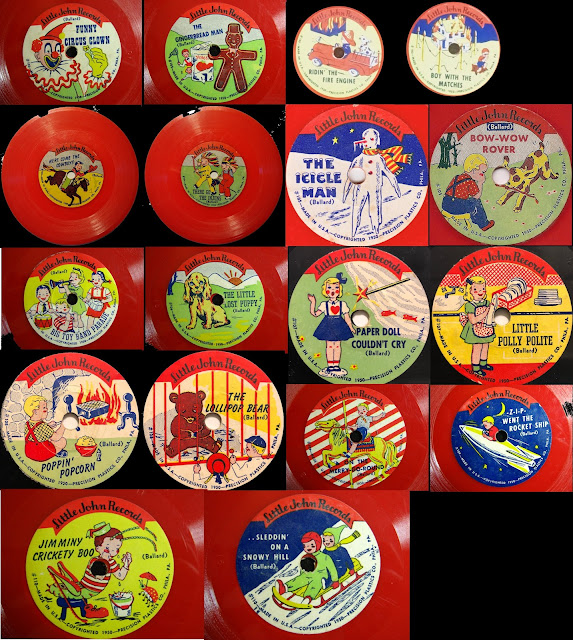
Rondo-lette Records was the great last flowering of Eli Oberstein's many budget record lines. Some "new" (read- very recycled material) lines were created after this (Acorn, Evon, and Hudson Records, to name a few), but they were very low-grade, even by budget record label standards. It was 1959, and budget stereo records were becoming a thing, so even Eli Oberstein had to enter the market. Eli Oberstein had many stereo recordings, real and fake reprocessed mono, issued covering everything from jazz, show tunes, classical, polka, you know, the usual budget stuff the older crowd that actually had the money to buy a stereo capable record player in 1959 would be inclined to pick off the shelves and take home with them.
This album contains the A-sides of the Halo/Concertone My Fair Lady and Pal Joey LP albums—all the good stuff with none of the filler.
My Fair Lady:
A1 I Could Have Danced All Night
A2 Get Me To The Church On Time
A3 With A Little Bit Of Luck
A4 On The Street Where You Live
A5 Wouldn't It Be Loverly
A6 Show Me
A7 Just You Wait
A8 Without You
A9 I've Grown Accustomed To Her Face
Pal Joey:
B1 Overture
B2 Funny Valentine
B3 Bewitched, Bothered, And Bewildered
B4 There's A Small Hotel
B5 I Could Write A Book
B6 I Didn't Know What Time It Was
Rondo-lette Records also was home to cleverly marketed packages of the same 1940s material that Eli Oberstein had sold to the public multiple times via his stable of different record label lines that recycled and repackaged material with varying sizes of record, speeds, jacket art, and sometimes other generic artist credits.
But, Rondo-lette Records was also unique in the Eli Oberstein tradition since it featured unique back slicks with liner notes- something that had yet to be seen since the earliest Royale Record album line pressings. Nevertheless, the party ended quickly, as Eli Oberstein died in 1960. His son subsequently sold his father's massive record catalog to Precision Radiation Instruments, who bought out the Tops Records founders' catalog around the same time. Even then, within a short span of years, Precision Radiation Instruments ended up selling its holdings to Pickwick. Pickwick has only reissued a small portion of the material, mainly the super-famous big names that people of the 1960s and 1970s still recognized, like Leadbelly and Percy Faith. Pickwick had its own generic music library, so it is little wonder that many Eli Oberstien generic recordings have not seen the light of day commercially since the 1950s.

































